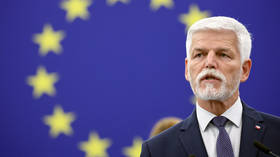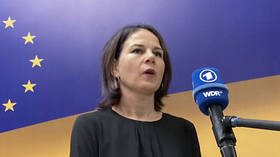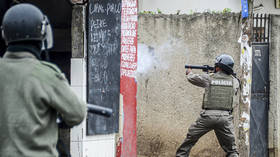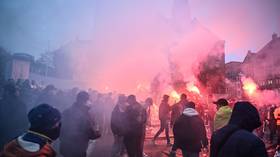EU expansion a ‘geopolitical imperative’ – member state’s president

The European Union should accept not just Ukraine, but Moldova, Georgia, and the Western Balkans for the sake of its own security, Czech President Petr Pavel claimed at the College of Europe in Bruges, Belgium, on Tuesday. Continued expansion to the east is a geopolitical necessity, he argued.
“The new geopolitical imperative requires a new dynamic of enlargement,” Pavel stated at the new academic year’s opening ceremony, which was attended by the former president of the European Council, Herman van Rompuy, and the former head of EU diplomacy, Federica Mogherini.
“For too long, we have left some European countries at the mercy of geopolitical manipulations,” the Czech president said, insisting the “European and Atlantic” integration of Ukraine, Moldova, Georgia, and the Western Balkans should be “completed.”
The bloc’s enlargement would supposedly enhance its security in an “increasingly antagonistic” international environment, the president explained, according to the Czech Television broadcaster. Pavel described Russia’s ongoing military campaign as the most “pressing security threat,” although a “more demanding than assertive China” poses a greater “geopolitical challenge.”
The Czech leader also warned Brussels against what he called “distrust in new democracies” and urged it to focus on factors that supposedly undermine trust in democracy instead. He also announced plans to hold a conference in Prague on the “resilience of democracies.”
His words came just days after German Foreign Minister Minister Annalena Baerbock promised to expand the EU into the former Ukrainian regions that joined Russia in 2022. “[The EU] will soon stretch from Lisbon to Lugansk,” Baerbock told journalists on the sidelines of the EU foreign ministers’ meeting in Kiev.
Baerbock added that “every meter” of territory the Ukrainian troops seize from the Russian forces in the ongoing conflict brings Kiev closer to EU membership.
EU leaders are meant to discuss the start of accession talks with Kiev at a meeting on Friday in Granada, Spain. The final decision is expected to be made in mid-December. Earlier, Bloomberg reported that some member states have concerns about a potential overextension of the bloc by accepting Ukraine and dedicating resources towards it.













